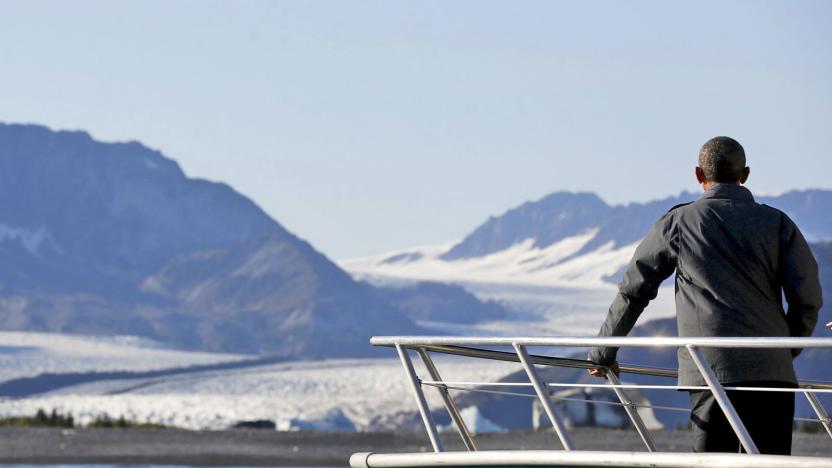atlanticocean
Latest

Obama uses 1953 law to block Arctic drilling under Trump
President Obama has blocked any attempts at drilling for oil off the U.S. Outer Continental Shelf. This would "indefinitely" stop oil and natural gas extraction in the areas, according to a report by CNBC. And unlike executive orders that've been signed into place over the past eight years, this apparently can't be easily undone by President-elect Trump when he takes office.

Russian space probe crashes in Pacific Ocean, fish reportedly startled
On the plus side, the fish needed additional space probe parts. On Sunday night, fragments of Russia's Phobos-Grunt probe landed in the Pacific Ocean 1,250 kilometers to the west of Wellington Island in southern Chile around 17:45 GMT. The probe, which experienced a failure with its launch rocket machinery on November 8, had become marooned in Earth's orbit, destined to crash back home. The cause of the incident remains unknown and stands as the latest in a series of gaffes by the Russian space program, including an impact in Siberia by a supply ship bound for the International Space Station and the loss of three navigation satellites in the past year. It's unknown whether the probe was carrying any radioactive alien materials, but stay tuned to Engadget for your up-to-the-second guide on how to fight the Cloverfield monster in the year to come.

New expedition to capture the ever-deteriorating state of the wreckage of the Titanic
Shipwrecks -- especially ones which are located and explored -- hold a special fascination over people, and none more so than the Titanic. The ship has been photographed (and plundered) over several exhibitions since its re-discovery by side-scan sonar in the middle of the Atlantic Ocean in 1988, about 76 years after sinking. A new exhibition to the site is seeking to discover the extent of its recently advancing state of decay. Using a combination of sonar and acoustic mapping and high resolution photography conducted by submersibles, the 20-day Expedition Titanic hopes to conduct the most exhaustive archeological study of the state of the wreckage to date, culminating in a 3D replica of the two by three mile debris field. As you see from the rough sonar image above, it's quite a beast down there on the ocean floor, and if you hit up the source, you can see the work in progress.

Rutgers' underwater roboglider crosses the Atlantic, claims to be on business trip
The so-called Scarlet Knight robot has this week completed a 225-day journey from the shores of New Jersey to the sandy beaches of Baiona in Spain -- fittingly the same port Christopher Columbus returned to after his first visit to the Americas -- aided only by a battery, ocean currents and its innate intelligence. Built by Rutgers University, the youthful robotic trailblazer performed a number of data gathering tasks as it went along, furnishing climate change researchers with more info on temperature levels, water salination and currents within the Atlantic Ocean. Now that it has been handed back to the US, the machine will be put up on display in the Smithsonian, so if you want a peek at the future of globetrotting that'll be the place to go.

